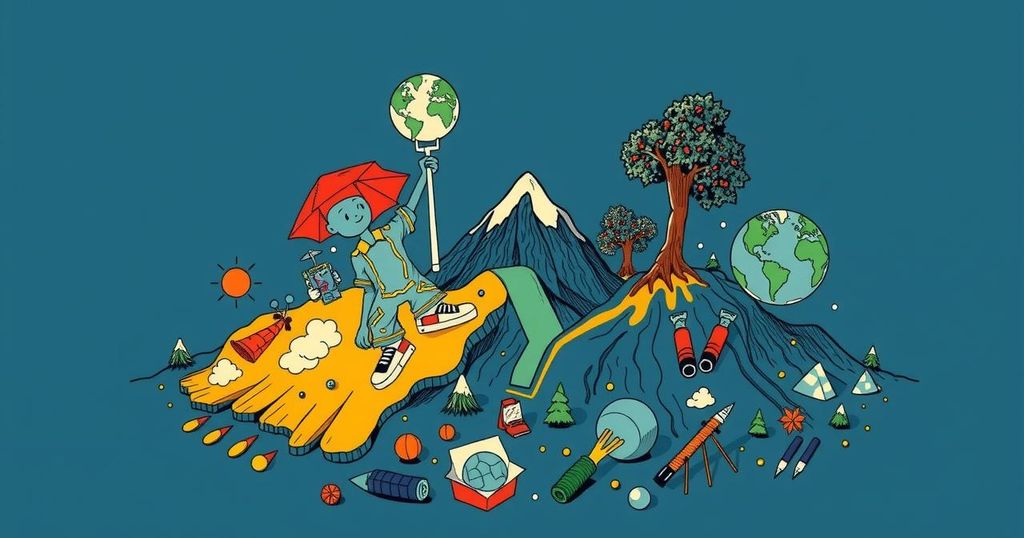Ahead of the UN climate summit in Azerbaijan, this article highlights ten critical milestones in the climate change fight that underscore the progression and obstacles of international efforts to combat global warming, from the establishment of the IPCC in 1988 through the landmark agreements reached at COP28 in 2023.
As the UN climate summit approaches in Azerbaijan, it is important to reflect on pivotal milestones in the ongoing fight against climate change. In 1988, scientists alerted the United Nations to the alarming signs of global warming, leading to the establishment of the Intergovernmental Panel on Climate Change (IPCC). This pivotal body aimed to investigate the rising levels of greenhouse gases produced by human activities, including fossil fuel combustion, deforestation, and unsustainable farming practices. The 1992 Earth Summit in Rio de Janeiro resulted in the formation of the UN Framework Convention on Climate Change (UNFCCC), creating a platform for the international community to address greenhouse gas emissions. The Kyoto Protocol, agreed upon in 1997, called for industrialized countries to reduce their emissions; however, developing nations were exempt from binding targets. Nonetheless, the United States’ refusal to ratify the protocol in 2001 hampered progress. In 2007, the IPCC underscored the reality of global warming, declaring it “unequivocal”, and was jointly awarded the Nobel Peace Prize along with former U.S. Vice President Al Gore for their efforts in raising climate change awareness. The COP15 summit in Copenhagen in 2009 faltered, with nations failing to reach a consensus on further emissions reductions, although a vague agreement was made to limit global temperature increases to two degrees Celsius. A significant breakthrough occurred in 2015 when nearly every country participated in the Paris Agreement, committing to limit warming to “well below” two degrees Celsius, with a target of 1.5 degrees Celsius as an aspiration. In 2018, Swedish activist Greta Thunberg made her mark by initiating school strikes, urging global leaders to take systemic action against climate change, sparking a global youth movement. The recent biodiversity accord established at the 2022 conference in Montreal aims to protect 30% of the world’s land and oceans by 2030 and strives to halt human-induced species extinctions. As of 2023, the COP28 in Dubai represented a critical moment as a landmark agreement to phase out fossil fuels was reached, signifying, as European Union climate chief Wopke Hoekstra stated, “the beginning of the end for fossil fuels”. Looking ahead, projections for the summer of 2024 predict unprecedented global temperatures, surpassing the critical threshold of 1.5 degrees Celsius above pre-industrial levels, raising concern for the impact on global ecosystems. The struggle against climate change is ongoing, and each milestone marks the progress and setbacks in our global efforts to ensure a sustainable future for the planet.
The fight against climate change is characterized by a series of international agreements and scientific assessments that highlight the urgency of the issue. With increasing global temperatures and extreme weather events fueling concern, various summits and protocols have been established over the decades to address these challenges. The IPCC plays a vital role by providing the scientific basis for understanding climate change while global summits such as the Earth Summit, Kyoto Protocol, and the Paris Agreement symbolize collective efforts in the international arena to combat this pressing issue. Noteworthy advancements have also emerged from grassroots movements, underscoring the pivotal role of public activism in influencing policy.
In summary, the struggle against climate change is marked by significant turning points reflecting both progress and challenges. The foundations laid by the IPCC and the establishment of international agreements underscore a collaborative effort to address the climate crisis. As global temperatures rise and the effects of climate change become more prevalent, the actions taken by both leaders and citizens will determine the future health of our planet. The recent agreements and calls for protection signal a pivotal shift toward sustainable practices, which must be strengthened to safeguard the environment for future generations.
Original Source: www.fox28spokane.com






